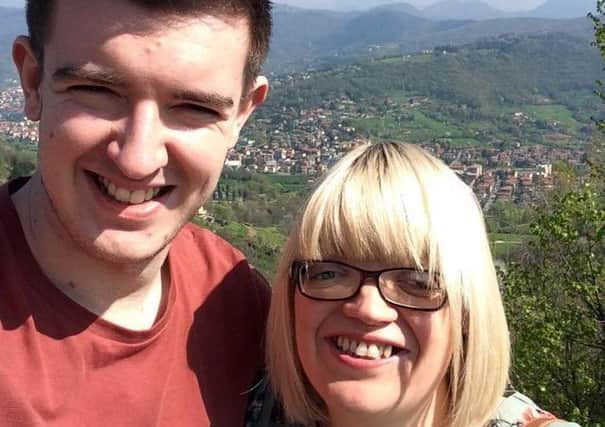Health: We're all going on a summer holiday '“but how do we really feel about it?


But how do people with a disfigurement feel about holidays? Is there the same sense of glee at the abandonment of the shackles of work, school, the 9-5 routine?
Or is that marred by anxiety, or dread?
Sun, sand and sea inevitably means wearing fewer clothes and maybe no makeup – protective mechanisms effectively whipped away from individuals with a visible difference. Changing Faces’ recent ‘Disfigurement in the UK’ report showed 14 per cent of respondents with an unusual appearance had experienced discrimination on holiday in the UK and a further 14 per cent in Europe - a worrying statistic, especially given that a holiday is supposed to be about relaxation, fun and enjoyment.
Advertisement
Hide AdAdvertisement
Hide AdFurthermore, the report highlighted the negative behaviour respondents had felt out and about – in the street, on public transport, or shopping, with more than 80 per cent saying they had experienced staring, comments or unpleasantness from a stranger – all situations that are intensified while on holiday in a different environment or culture.
Cat Ross, Changing Faces Yorkshire and the Humber centre regional manager, said: “At Changing Faces Yorkshire and The Humber, we found a very mixed range of responses from our clients and supporters about their experiences of going on holiday and how they cope with looking different to the perceived ‘norm’.”
Tina, aged 50, from South Yorkshire, has a partial face paralysis, and does not currently go on holidays. She said: “I wouldn’t want people to be put off their food by my dribbling at dinner, and I would feel anxious about people staring at me.”
Tina, who also walks with a stick, added: “I would be mortified if I had to go to the pool with my stick, especially if there was a tall, dark and handsome man around!”
Advertisement
Hide AdAdvertisement
Hide AdTina currently receives support from Changing Faces and has accepted that, for now, she cannot travel – but hopes she can take holidays again in the future.
Ahmina Akhtar, Changing Faces practitioner, explains that client therapeutic work uses positive affirmations, such as words of strength and courage which a client can say to themselves as a mantra in a challenging situation.
Ahmina said: “We also use a jigsaw analogy as one of our exercises. A client looks at their whole self, all their strengths and skills and explores the idea that physical appearance is only a piece of the jigsaw.”
Mindfulness, another technique used by Changing Faces, helps clients feel more in control of situations where they might feel uneasy – an example being on holiday in unfamiliar surroundings. Mindfulness helps to centre a person and gets them to concentrate on the present, their own feelings and the world around them. This awareness helps us notice signs of stress or anxiety earlier.
Advertisement
Hide AdAdvertisement
Hide AdEsther Fulls, aged 44, of Killamarsh, works as a nurse in the NHS and has a facial birthmark. She said: “Because my visible difference is evident all the time, I don’t really get more anxious about meeting new people when I go holiday than at any other time. But usually I wear makeup which helps to tone down my birthmark, and when I’m sunbathing and it’s hot I don’t really want to wear it.
“I don’t really have any different coping strategies for holidays, I just be myself and chat to people.”
Changing Faces practitioner Emily Wheeler said: “Esther’s approach shows how confidence and being yourself can go a long way to helping make a holiday a positive experience.
“Feeling self-conscious about not wearing any makeup on a beach is a common issue, whether you have an appearance-changing condition or not, especially in our photo-shopped, beauty-obsessed world.
Advertisement
Hide AdAdvertisement
Hide Ad“For some individuals with a visible difference, baring all is too much and skin camouflage products can really help.”
Skin Camouflage products are waterproof and therefore ideal for use on holiday in the sea and pool and can help cover and reduce the appearance of a range of skin conditions, including scarring, leg veins or rosacea.
Amy, from Rotherham, is in her 30s and has extensive vitiligo, and uses skin camouflage to help reduce discoloration on her skin.
“I have found it especially useful on beach holidays, as I can still swim and sunbathe without drawing too much attention to myself.”
Advertisement
Hide AdAdvertisement
Hide AdOther tips to feeling less ‘on show’ on a beach setting can be wearing a sarong, a tankini, a burkini or a wetsuit.
Kate, aged 42, of Greystones, has a two-year-old son with a prominent birthmark on his arm. She said: “On holiday I tend to dress him in a toddler wetsuit as it protects his birthmark from the sun, but it also stops people from staring. If he does wear T-shirts and people stare, I just look back and smile. I think quite often they are just inquisitive.”
Curiosity can often be a factor in why people stare. There often isn’t any malice, or negativity behind it, however the impact can be huge.
If you are affected by any of the above and would like to talk to someone, email Changing Faces Yorkshire and the Humber on [email protected] or call 0114 2536662.